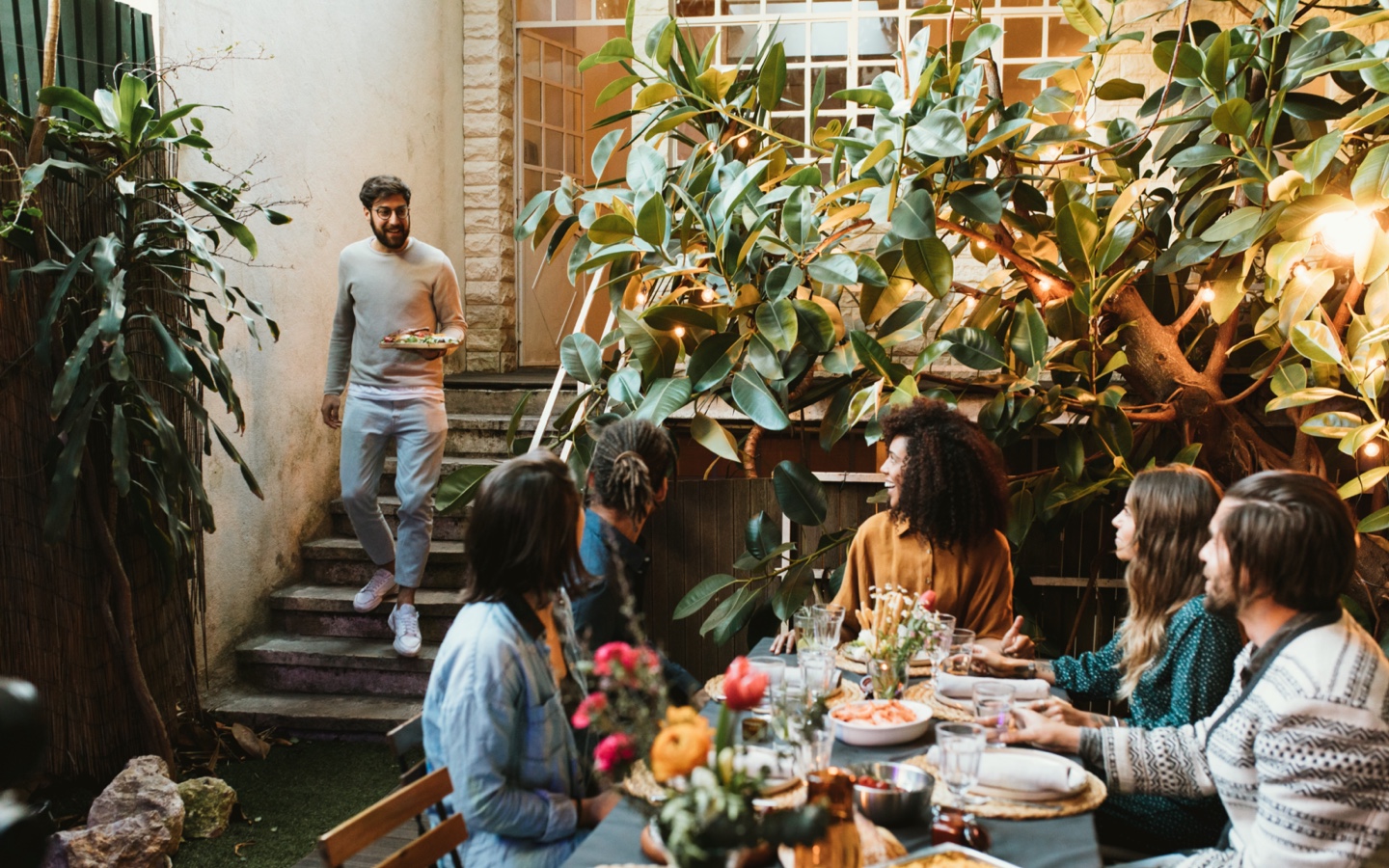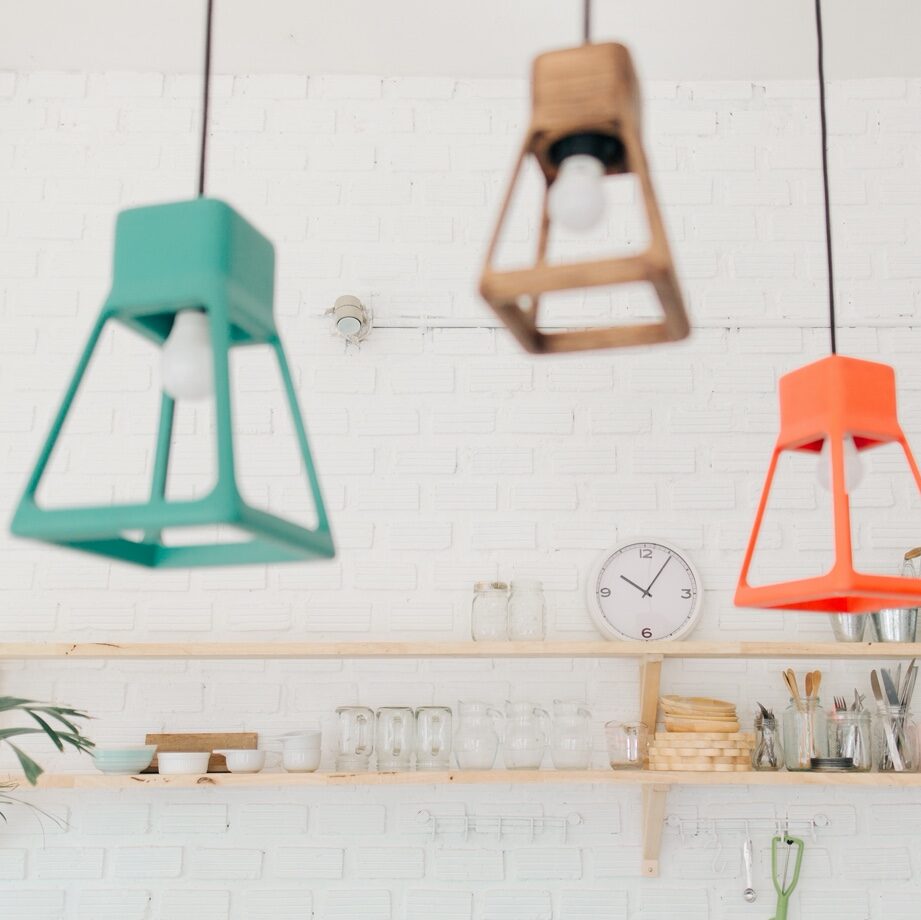Climate Cafes are popping up across the U.S. and abroad as a safe space for people to share and talk about climate-related feelings and eco-anxiety.
Imagine entering a quiet cafe, grabbing a latte and a pastry, then sitting down at a table with a dozen other people to discuss your thoughts and feelings about climate change. In this space, at this cafe, all feelings are welcome. People’s reactions to this existential crisis can vary, so much so that psychologists have even given a name to this emotional response: Eco-anxiety.
As you get comfortable in a big armchair, you look around at the others in your group; you’ve never met most of them, but you’re excited to talk about how you feel and what’s been going through your head lately. The wildfires, the big storms, the hotter summers and colder winters — it’s all causing you a lot of stress, and your partner and friends aren’t really interested in hearing about it, much less discussing it. You’ve signed up for this event today because you want to get some of your fears out of your head, into the world. And you want to feel less alone.
This situation isn’t imaginary; it’s happening in cities all over the world, in what is being called Climate Cafes.

Read more: Why the Majority of Americans Are Dealing With Climate Anxiety
“I have been facilitating climate cafés in Oxford since the very hot summer of 2018 when I saw people expressing a lot of anxiety about the climate crisis — even who hadn’t previously talked about it much,” Rebecca Nestor, a Climate Cafe facilitator, wrote in 2020. “The idea behind them is that talking about climate change is really important — but our feelings of guilt or frustration often make it more difficult.”
Reverend Richenda Fairhurst, an Oregon-based Climate Cafe facilitator, says she attended her first climate cafe in April 2021 after being connected with Climate Cafe founding director Jess Pepper. Pepper launched the original Climate Cafe in the U.K. in 2015 to empower people to begin climate-related conversations. And this was right up Fairhurst’s alley. Because of the pandemic, Fairhurst’s first climate cafe was virtual — but it made a big impact on her, who was chairing the Climate Reality Project in Southwestern Oregon at the time. “I immediately loved the format,” she says.
Fairhurst decided to bring Climate Cafe to the U.S., to circle up her multi-faith community and start climate conversations. “The key is just listening, sharing [and] welcoming,” she says. “You don’t have to be anything, in particular, to just come, learn, ask questions, share, and get to know people.”
“It is so important for people to just talk together with other people about climate change. It is like this huge relief, and antidote to the anxiety and discord of divided families and one-up memes.”
In Pepper’s mind, the climate cafe is a meeting of the minds with people from all walks of life, moderated by facilitators, where everyone can share their feelings and responses to the climate crisis in a confidential space. Most climate cafes involve delicious food and drink, and an open environment that helps participants feel relaxed and included. According to the Climate Cafe web page, anybody can host a Climate Cafe. But there are some best practices, learned over time by the original climate cafe directors: No guest speakers, no lecturers, no advice, and no action-taking requirements. Instead, the space is about giving participants a space to process their feelings.
Read more: Using Art to Process Eco-Anxiety
“We really need the kind of exploration that climate cafés provide as we face the climate crisis,” writes Nestor. “We increasingly need to talk about what our changing climate means for us in terms of impacts at personal, family, and societal level. We need to imagine it in some detail so as to be able to think about it constructively and clear-sightedly, and to explore some complex feelings and thoughts which may often be taboo and hard to talk about.”
“It is so important for people to just talk together with other people about climate change. It is like this huge relief, and antidote to the anxiety and discord of divided families and one-up memes,” Fairhurst says. “The scale of climate change is so big, we have to remedy that by taking the opportunities to get really small.”
“Understanding the scale and pace of the action needed to act on climate change is key,” founding director Jess Pepper says. “People can feel isolated, worried and wonder where to start but when they get together, connect with others and begin to talk, share information, ideas and chat about what can happen – this conversation not only informs, inspires and involves others but generates action and instills hope.”
Climate Cafes took a bit of a hit with Covid, as in-person events became limited. But the in-person component is slowly starting to emerge again as the pandemic ebbs. And online climate cafes have proven to be impactful replacements for the time being. Fairhurst’s multi-faith Climate Cafe group meets three times each month, to prioritize conversation about many topics like climate disasters and individual action.

Read more: Introducing Our New Podcast Series: ‘A Little Green’
“One thing that is really great about the Climate Cafes is you can work within the structure to do something in your own community that reflects who you are, where you are, and what matters to your people and your patch of Earth,” says Fairhurst. “And that’s it — really, that’s everything. Because climate work starts right there, all of it.”
If you’re interested in hosting a climate cafe in your area, consider some of these guidelines: No money should change hands, and meetings should take place in a community center or cafe — or online. It’s helpful to have several facilitators, and meetings are most successful when they last for about 90 minutes. It should also be a pressure-free space. The Climate Psychology Alliance offers training for how to facilitate and host a climate cafe, which you can find on their website. You can also read about hosting guidelines at the Climate Cafe website.
What’s next for Climate Cafe? Pepper says the idea has grown exponentially without much promotion, and it’s now a global movement. Her mission moving forward is to offer support and resources, so people everywhere can learn how to start their own climate conversations worldwide.
Read more: 5 Ways to Naturally Reduce Stress and Anxiety
Have feedback on our story? Email us at [email protected] to let us know what you think!

Shop Pillows
The Essential Organic Pillow Collection
Gentle, breathable, non-toxic support.





